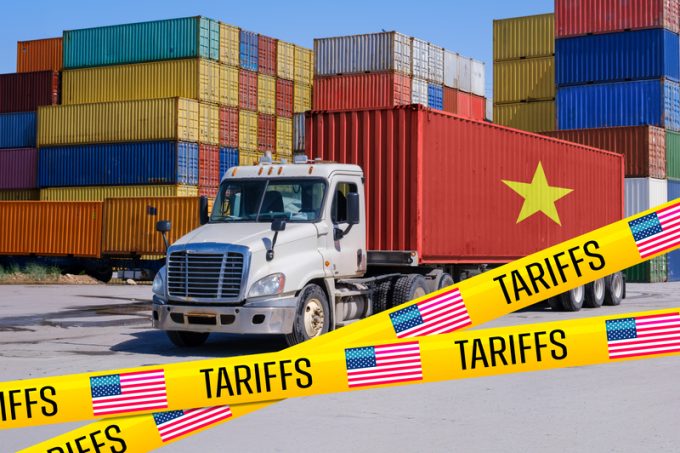The recent imposition of steep U.S. tariffs has forced Asian exporters to cancel hundreds of container bookings, as American buyers balk at higher costs. Taiwanese cardboard producers with factories in Vietnam, for instance, have scrapped up to 300 container shipments after President Trump’s 46% tariff rendered their goods uncompetitive.

Orders for May and beyond remain in limbo. One manufacturer told *The Loadstar*: “We’ve been instructed to halt all May shipments because the tariffs have made pricing untenable. Buyers asked if we could absorb the 46% hike, but that’s impossible.”
With demand collapsing, factories are scaling back operations, cutting shifts, and reducing workers’ hours. This marks a stark reversal from Trump’s first term (2017–2020), when his trade war with China drove manufacturers to diversify into Vietnam, Mexico, and other emerging markets under the “China plus one” strategy. At its peak, Vietnam shipped 10,000 daily containers to the U.S.
Now, freight forwarders report roughly 300 daily cancellations—a fivefold spike from pre-tariff levels. Linerlytica warns the tariffs have undermined carriers’ attempts to hike transpacific rates, leaving May contract negotiations in disarray.
“The U.S. effective tariff rate, weighted by container volume, will surge to 36%, escalating toward a full-blown trade war,” the consultancy noted, slashing its 2025 global container demand forecast to -1.1%.
Though the Shanghai Containerized Freight Index showed a 6% weekly rise to $2,313 per 40ft for U.S. West Coast routes (and 4% to $3,306 for the East Coast), Linerlytica predicts these gains will vanish as cancellations mount, forcing carriers to cut rates anew.
The fallout underscores how tariffs, intended to protect domestic industries, risk destabilizing global trade networks—leaving manufacturers, carriers, and consumers in the crossfire.
